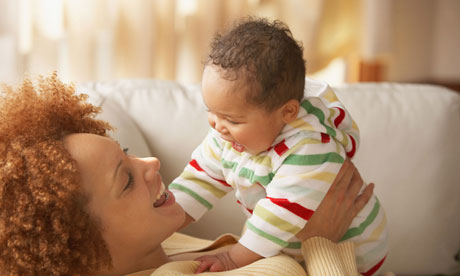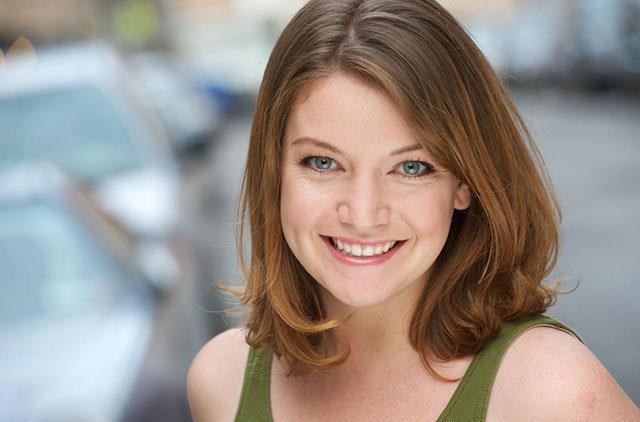|
At around 22 weeks in utero, your baby begins to hear sounds. They quickly start to develop an appreciation for music, talking, singing as well as show dislikes for certain sounds, commonly expressed through kicking. From birth, babies pay close attention to the sounds around them. They recognize the voices and music they heard in utero. Even though hearing is introduced in utero the parts of the brain that respond to complex sounds and attach meaning to what is heard, continues to develop until about age 12. Music ignites all areas of child development, helping the mind and the body work together. Babies love to be sung and spoken to! When we sing we engage our breath and we stimulate the right side of our brain. This singing leads to babbling and making sounds, which eventually becomes speech, which takes places in the left side of the brain. Your baby will even start singing along with you before they begin talking, as they recognize melody before they understand words. Don't worry about your voice, a baby never cares if you can sing or not, they just love the human voice. Singing and talking is my preferred method of music, but recorded music can serve the same purpose, as long as it isn't too loud. Babies are sensitive and intelligent little beings and I don't think we give them much credit when it comes to understanding the world around them. While they don't have the ability to talk yet, they have cries that express different needs along with their movement. You may have a baby who starts to throw her body backwards when she's hungry, or maybe your little guy rocks his head side to side when he is stressed or over tired. I always like to explain as much as I can to babies. This is reason as to why we use transition songs in class or nursery schools. "Clean up" is a tradition transition song. This songs helps them figure out that we are moving into something new. Babies won't really be able to understand the concept of cleaning up until around 8 months, but like I said above, they recognize melody before the actual words, so that tune sticks in their mind and helps them cue for the shift. Transitions songs, or activities are also great for going to sleep. Try creating your own little tune or song to start singing when its time to transition into something new! Talking and reading to your baby helps your baby develop an ear for the cadence of language. Using voices, accents and varying the pitch makes the aural connection to you and your child much more stimulating. You don't need to bombard your child with talking and singing, but if they seem interested tell them what your doing through out the day. For example, if you're getting them dressed, talk about the colors they are going to wear that day. What the garment is that you are dressing them in. How does the texture of that garment feel against their skin. You can also tune in to what your baby hears and comment on that. Acknowledging the sounds they hear helps them learn more about their environment. It's the auditory enjoyment of stopping to smell the roses! We can also help our babies learn about breathing. They are already breathing perfectly (unless asthma is present), but they are also picking up on our breathing style as we hold them and live with them. Adults are usually not the best breathers. We carry our breath high in our chest. As we multi-task and engage more in mind tasks we start to disconnect from our bodies and our breath gets higher. We forget to breath deeply from our bellies, filling our lungs and body. In this regard, your baby can actually serve as a great reminder to breath deeply! We can still help babies with breathing by taking in full deep breaths, with sounds, as we hold them or have them sitting in our lap (our belly pressed to their back). The sound element is there so the baby feeling hears you breathing, and can learn through the kinesthetic and auditory processes. These full breaths flood the body with oxygen and flushes out stale air that has become trapped in the body. This leads to feeling refreshed and invigorated which is translated to your baby. It's a win-win!! Blend Images/Alamy
1 Comment
|
Ansley DeLaney
Ansley has been teaching Infant Movement classes since 2013, after studying Developmental Movement with Ellynne Skove. Since completing her training Ansley has taught all over the New York, New Jersey, Boston and now Florida. Ansley is certified in Level 1 Reiki and has completed her 200hr YT. She is passionate about empowering, nurturing and providing care to all families as they encounter the demands and joys of parenthood. Through her work she is able to soulfully fulfil her greatest ambition; to care for others. Archives
September 2018
Categories |


 RSS Feed
RSS Feed